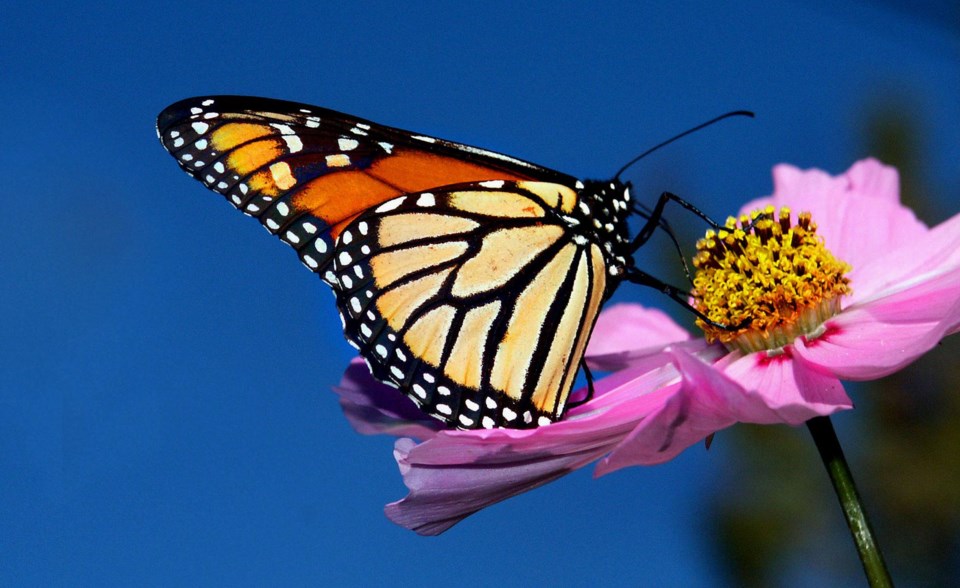‘I need a reason to come out here more often,” she said. “I love seeing how it changes through the year — the changes in vegetation, the wildflowers taking their turns, the birds coming and going.”
I was hiking with a friend, but we spent more time sniffing wildflowers, identifying birds with binoculars, and crouching down to look at bugs than propelling ourselves forward.
“I’ve been thinking of signing on to one of those citizen science projects,” she added. “That would add a certain official-ness to coming out here. And knowing that others expect me to stick to that commitment would probably keep hiking from getting squeezed off my calendar.”
“So what’s stopping you?”
“Choice, mostly,” she said. “There are lots of opportunities to choose from.”
At its most basic, citizen science involves collaboration between scientists and volunteers, with volunteers collecting or processing scientific data to help answer research questions.
The concept has grown in scope, popularity and opportunity during the past 15 years, allowing people like my friend to engage in and contribute to science even if they don’t have a science degree or access to a lab.
Citizen science also provides people with an opportunity to engage more purposefully in something they already do or want to do more often. In exchange for training — from 20 minutes to a couple of days for each project — they can help scientists collect, record and process the information they need for their research.
The following list is a sample of opportunities on the south Island.
Bird Studies Canada has regional and national programs. For example, it recruits citizen scientists for the Canadian Migration Monitoring Network, Project Feeder Watch, the B.C. Coastal Waterbird Survey, and the B.C.-Yukon-Northwest Territories Nocturnal Owl Survey. Volunteers watch for, identify, and record birds to provide baseline information on and monitor trends among different bird populations, and to improve understanding of how landscape changes affect wild bird habitats and populations. birdscanada.org/volunteer.jsp
The B.C. Community Bat Program seeks volunteers to count bats at local roost sites for the Annual Bat Count. The count will provide baseline data on bat populations before the devastating White Nose Syndrome fungal disease affects bats in the province. Kids, clubs, families and schools signed up with NatureKids B.C. in Victoria will be supporting the bat survey this year. Participants will count bats during four NatureKids B.C. Explorer Days. bcbats.ca/index.php and naturekidsbc.ca/be-a-naturekid/ stewardship-citizen-science/bat-citizen-science/
The David Suzuki Foundation’s 2019 Butterflyway Program has Victoria-area residents helping to identify butterflies in the region. Researchers will use the information collected to monitor the health of these important pollinators. davidsuzuki.org/take-action/ act-locally/butterflyway/
E-Flora B.C. seeks citizen scientists for the Atlas of the Plants of British Columbia. This ongoing project is based upon vouchered and confirmed records of plant, lichen and fungi species in B.C., as well as geo-referenced photographs submitted by citizen scientists and vetted by experts. /linnet.geog.ubc.ca/ ShowDBImage/photoWanted.aspx
In the Nanaimo area, B.C. government researchers train citizen scientists to collect water-flow data from small streams. Having local information helps researchers understand how nearby land use affects streams and enables better-informed decisions about activities on the surrounding landscape. rdn.bc.ca/ community-watershed-monitoring
For those who prefer to spend time on the water, the Pacific Salmon Foundation runs two citizen science projects.
Anglers and fisherfolk collect ocean data at specific locations on the Strait of Georgia on the same day one to three times each month from February to October. The data allows researchers to assess how the Salish Sea’s physical and chemical properties vary from place to place and to estimate phytoplankton biomass, improving understanding of how the strait’s productivity changes over time.
For the Adult Salmon Diet Study, Avid Anglers citizen scientists save and freeze the stomachs of salmon they catch, fill out a data card for each fish, and drop stomach contents off at designated tackle shops. By engaging multiple volunteers with small vessels, the team collects data about the fish species that salmon are relying on in the strait. marinesurvivalproject.com/ research_activity/list/citizen-science-program/
Further afield, the Ucluelet Aquarium runs two-day microplastic surveys at the start of every month. Citizen scientists can join staff in sampling local beaches for small bits of plastic mixed in with the sand. uclueletaquarium.org/events/ monthly-microplastic-survey/



